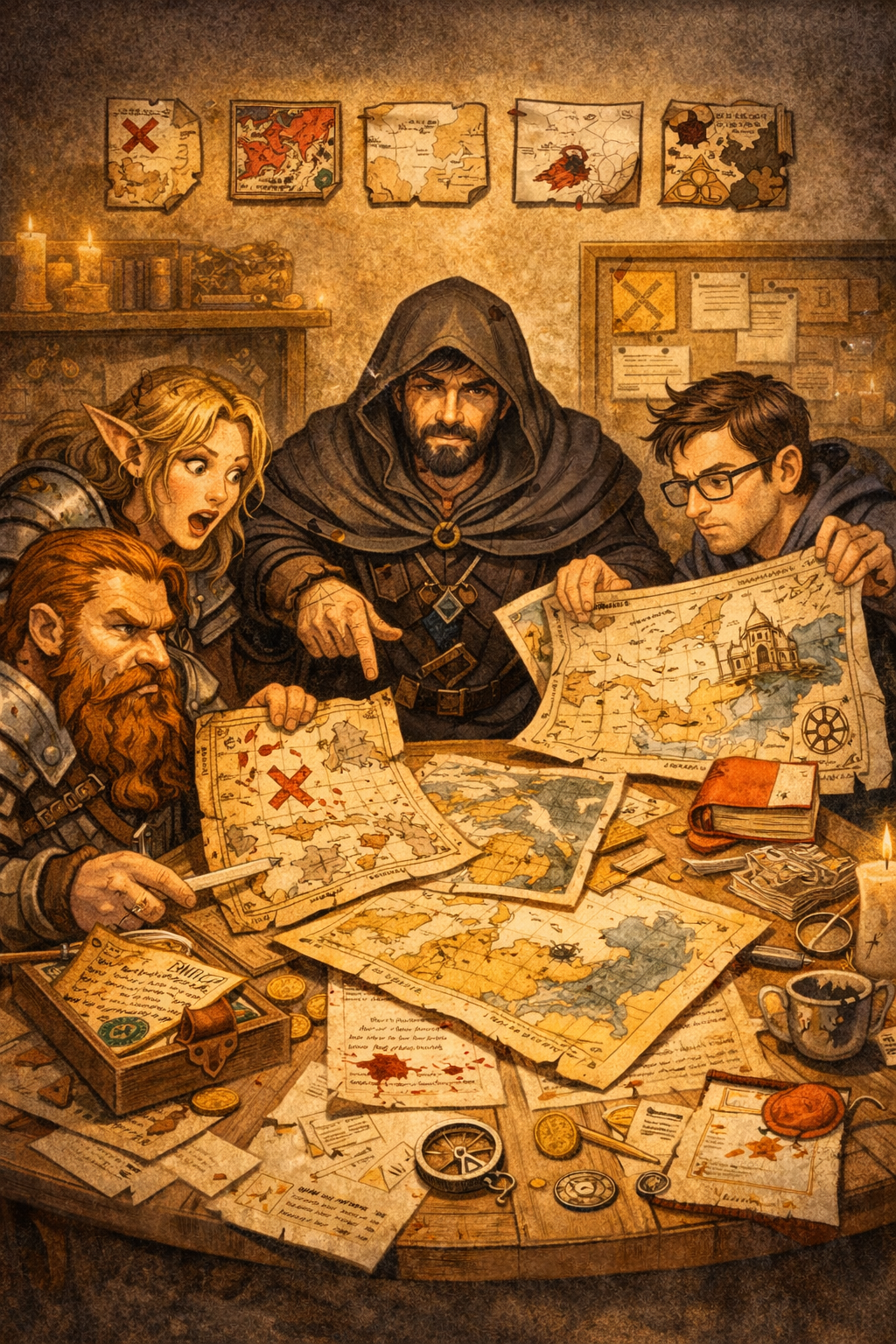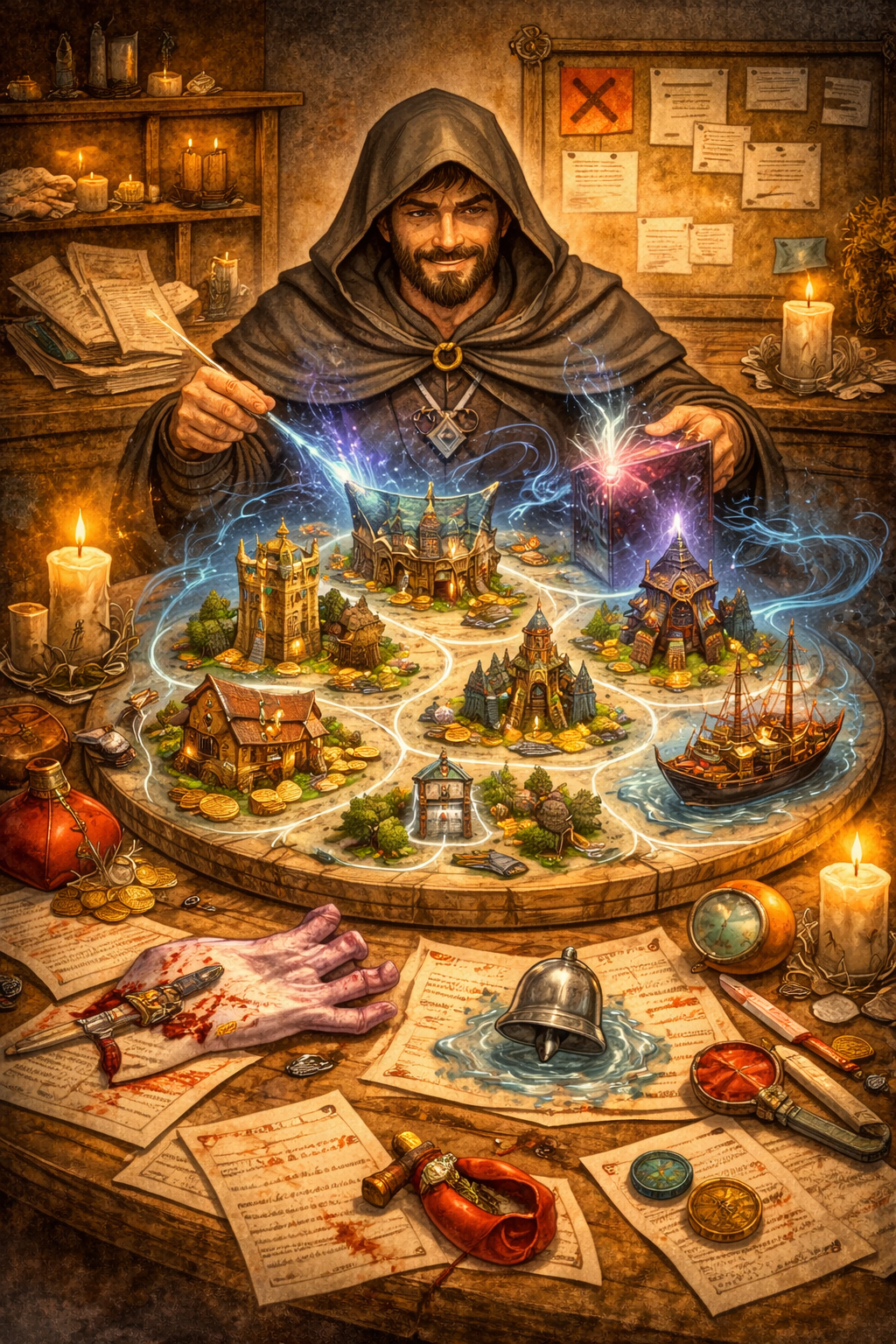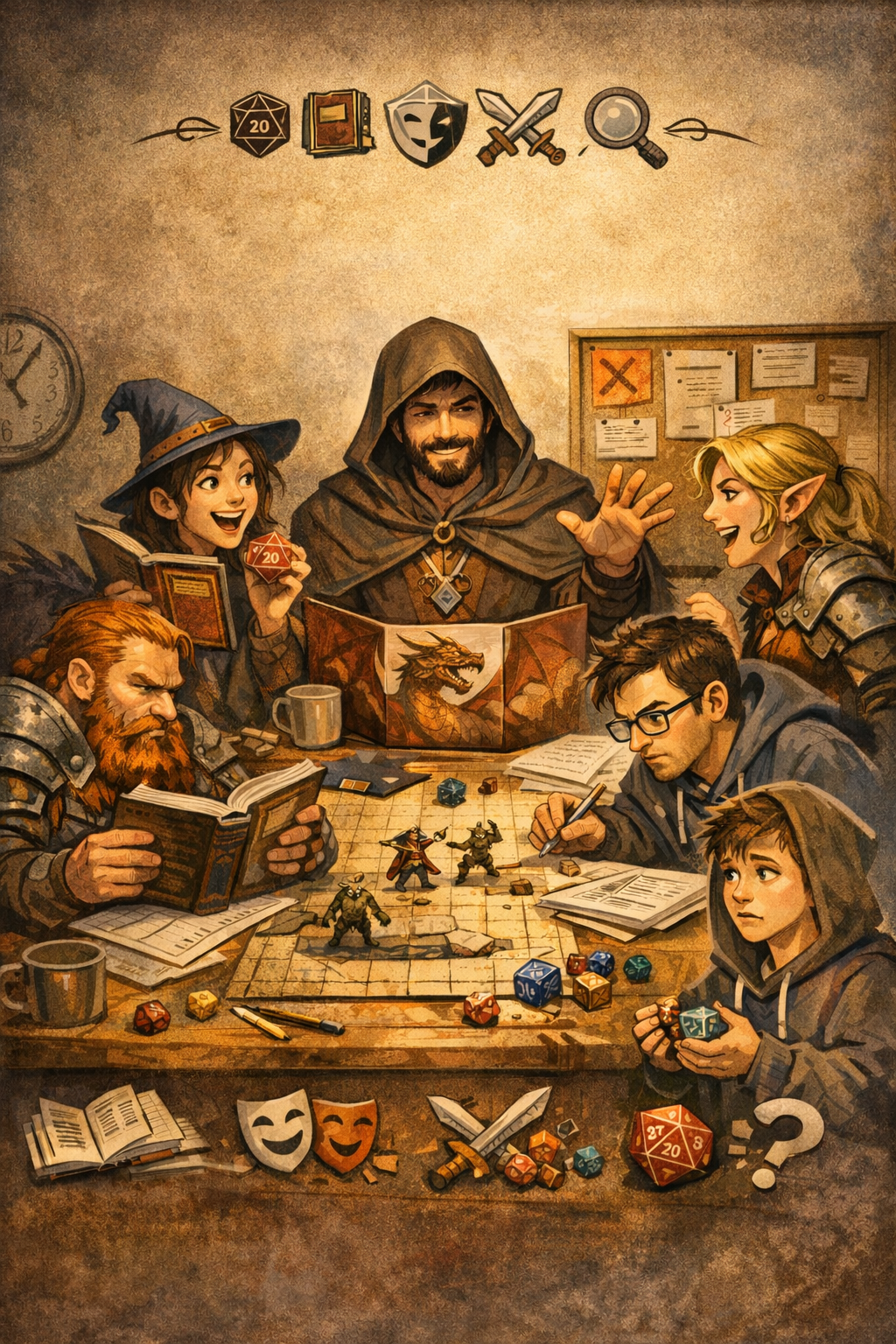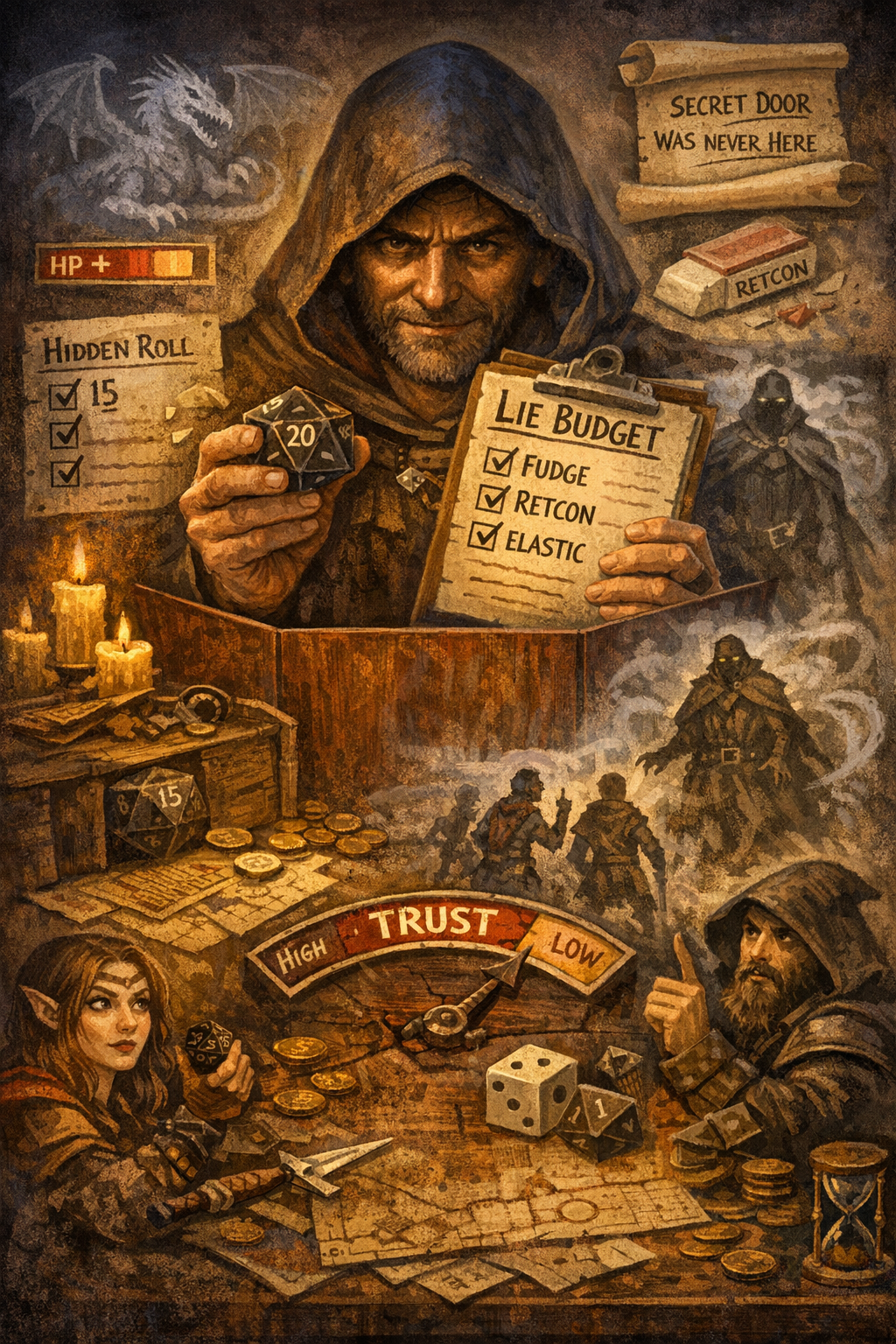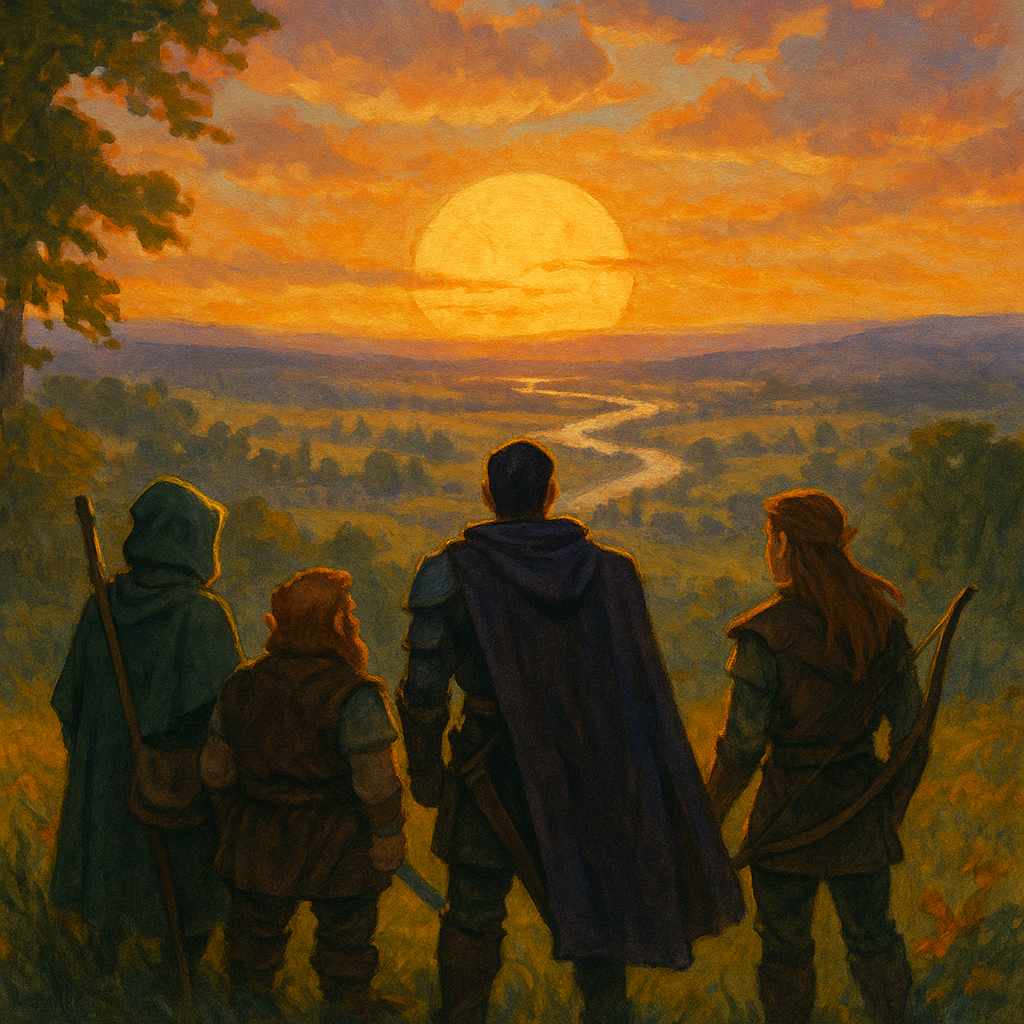The Fellowship of the Table: Building a TTRPG Game Community
A Group that plays together stays togeher
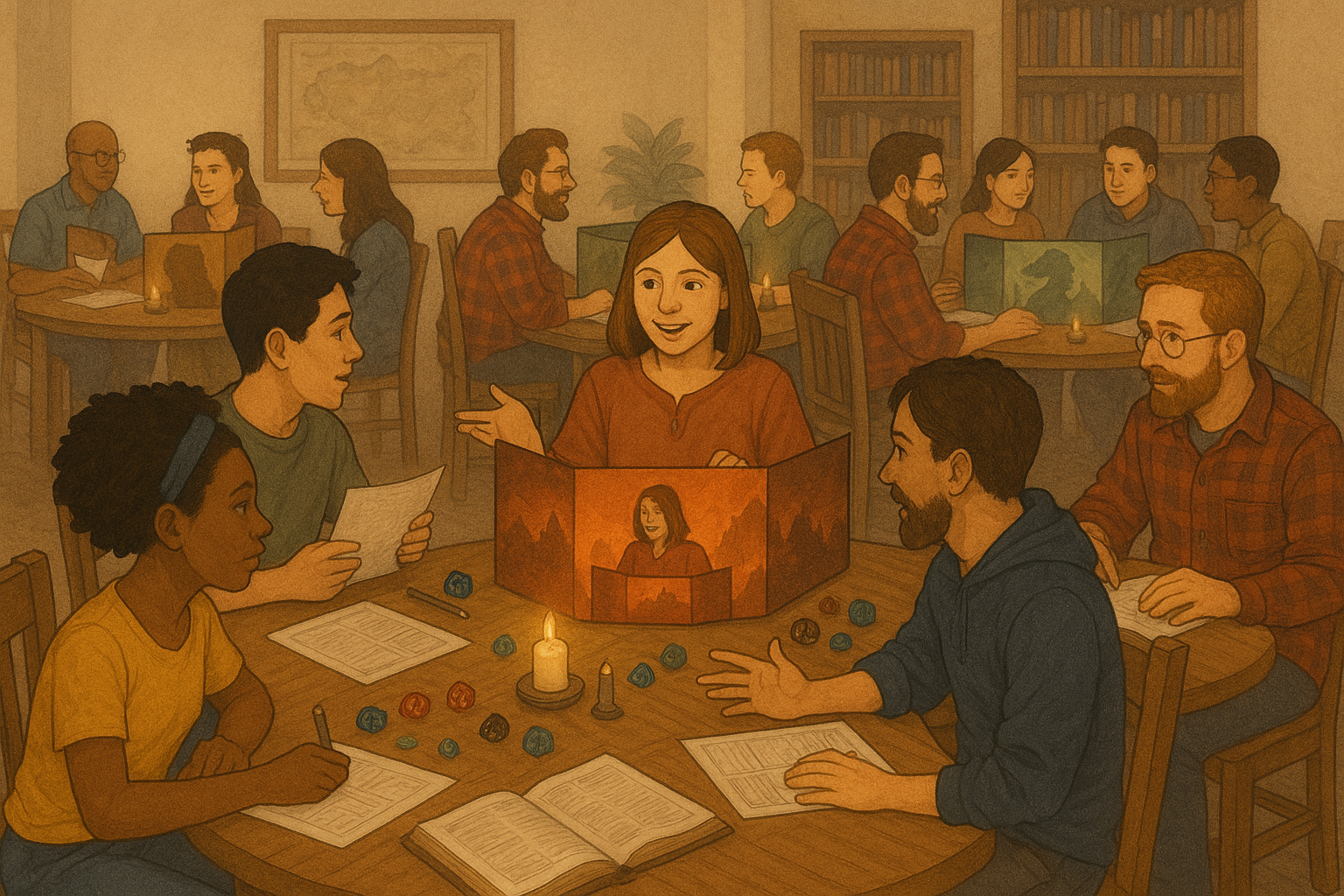
Dear Readers,
It’s been a while.
Longer than I’d planned, longer than I’d hoped. But I come to you now with an update—and a bit of an apology. Life, as it does, threw a few critical fails my way. I’ve recently moved across the country, chasing new opportunities and a fresh start for my family, my ministry, and my gaming table. It was a long-planned adventure, but here’s the kicker: my moving truck still hasn’t arrived.
Yes, you read that correctly. Most of my worldly possessions—books, miniatures, terrain, dice collections that would make a dragon jealous—are currently on a magical mystery tour of the United States. I imagine them as NPCs on a side quest they didn’t agree to, meandering across forgotten highways and curious towns. There’s probably a gelatinous cube in the glove compartment by now.
Despite the chaos, I’m writing to you today not just to reestablish connection but to share something that’s been on my heart for some time: how to build a tabletop roleplaying game community that lasts. Whether you’re an aspiring Dungeon Master, a veteran Keeper of Arcane Lore, or just someone wanting to foster meaningful connection at the table, this one’s for you.
Let’s talk about what it means to build—not just run—a thriving, welcoming, purpose-driven TTRPG community.
Chapter 1: Why We Gather
First, let’s acknowledge something simple yet profound: tabletop RPGs are more than games. They’re empathy machines, shared storytelling spaces, and vessels for belonging. The experience of sitting down together, shedding our everyday selves, and donning the mantle of adventurers, investigators, rebels, or misfits is an act of collective imagination—and communal trust.
I’ve run hundreds of games, both professionally and casually. I’ve led groups online across time zones and at local tables where snacks and stories are shared in equal measure. What I’ve learned through it all is this: a good game session can be fun, but a good game community can change lives.
People crave connection, especially those drawn to TTRPGs. For many, the table becomes a sanctuary. We bring our wounds, our triumphs, our awkwardness, our hopes—and we’re seen, even if we’re hiding behind a dwarf barbarian or a tiefling bard. That’s why building a community matters. The magic isn’t just in the monsters we slay; it’s in the friendships we forge doing it together.
So how do you build that kind of magic?
Chapter 2: The Core Values of a TTRPG Community
Before we get into logistics and recruitment, let’s talk values. Just like every good campaign needs a theme, every great gaming community needs guiding principles. Here are the ones I’ve found foundational:
1. Inclusivity
This isn’t optional. Our tables should be places where everyone—regardless of background, ability, identity, or experience level—feels welcome. We don’t gatekeep. We guide.
If someone is new, help them learn. If someone’s neurodivergent, make space for how they best communicate. If someone shares that they’re uncomfortable with something, respect it. This isn’t about being politically correct; it’s about being decent human beings—and good stewards of the stories we share.
2. Collaboration Over Competition
TTRPGs are not winner-take-all board games. They’re collective narratives. The best communities foster cooperation, not conquest. Even PvP-friendly games thrive when players buy into the shared drama, not when they try to "win" D&D.
Teach this early and reinforce it often: the best play is the one that serves the story, not the ego.
3. Respect the Table
This means showing up on time, being mentally present, not interrupting, and honoring boundaries. Real life always comes first, of course—but when we respect the table, we signal that everyone’s time and emotional energy matter.
And yes, that means handling “table drama” like adults. More on that later.
Chapter 3: Starting the Fire — How to Begin
Now that we’ve set the tone, let’s get into the practical. How do you actually start building your own TTRPG community?
Step 1: Define the Purpose
Ask yourself: What kind of community do I want to build?
- Is it a casual drop-in West Marches campaign?
- A long-form narrative epic with recurring characters?
- A faith-based group that incorporates moral storytelling?
- A space for teaching new players how to play?
Knowing your purpose helps you make consistent choices later: from system selection to session style to moderation standards.
Step 2: Plant the Seeds
You can’t build a community without people. Here are some ways to gather your first group:
- Local game stores – Ask to host a one-shot or post a flyer.
- Churches and faith groups – Offer to run a game night or creative storytelling workshop.
- Online forums and social media – Post on Discord, Reddit, or Facebook groups with your vision.
- Word of mouth – Tell your friends, coworkers, or fellow students.
Start small. Even two or three consistent players can become a core group that grows over time.
Step 3: Choose the Right System
Don’t feel locked into D&D if it doesn’t serve your players. Some communities flourish under Monster of the Week, Call of Cthulhu, Tales from the Loop, or FATE. Choose a system that aligns with your group’s goals, tone, and experience level.
If you’re just starting out, D&D 5e or 2024 is great—but don’t be afraid to branch out once your foundation is solid.
Chapter 4: Cultivating Culture
Once your group exists, you shift from builder to gardener. You’ve planted the seeds. Now it’s time to nurture growth.
Create Shared Rituals
Every community thrives on traditions, even small ones. Maybe your group always does a “session zero” for new campaigns. Maybe you say a goofy in-character prayer before battles. Maybe you take “pizza breaks” halfway through.
Shared rituals build a sense of identity and comfort. Don’t underestimate their power.
Celebrate the Players, Not Just the Characters
It’s easy to get caught up in “what happened in the game,” but take time to acknowledge player contributions too. Did someone roleplay a difficult moment well? Did a shy new player finally speak up? Did someone bake brownies for the group?
Call it out. Celebrate it. Communities are built on more than dice rolls.
Build Offline Bonds (When Possible)
If you’re playing in person or with local players, find time to connect outside the game. Grab coffee. Host a movie night. Go to a Ren Faire together.
Online communities can do this too—just virtually. Watch parties, Discord hangouts, and shared playlists go a long way.
Chapter 5: Handling Conflict and Burnout
No community is without friction. Even the best groups encounter tension. It’s how you handle it that determines whether you grow or fracture.
Address Issues Early
If someone’s behavior is causing harm or discomfort, address it promptly—but with grace. Start privately. Be specific, be kind, and give them a chance to grow.
Use tools like X cards, safety check-ins, and session zero documents to preempt problems. Encourage open communication from day one.
Set Healthy Boundaries
If you’re the GM or organizer, you’re not just the storyteller—you’re a leader. Protect your own time and energy. It’s okay to take breaks. It’s okay to say no to problem players. It’s okay to cancel a session if life’s overwhelming.
Communities can’t thrive if their shepherds burn out. Be honest. Let your group support you, too.
Know When to Let Go
Sometimes, despite your best efforts, a group dynamic just isn’t healthy. It’s okay to step away. It’s okay to dissolve a group that no longer serves anyone well. That doesn’t make you a failure—it makes you wise.
You can always build again. And when you do, you’ll do it better.
Chapter 6: Growing Beyond the Table
A vibrant TTRPG community doesn’t have to stop with your home group. Here’s how to scale the vision:
Run Public Games
Offer a monthly one-shot at a local library, game store, or school club. These can be entry points for new players and ways to meet potential long-term group members.
Create Online Spaces
Set up a Discord server or group chat with dedicated channels for game scheduling, character ideas, memes, prayer requests (if faith-based), and off-topic fun. Encourage respectful engagement, and assign moderators if needed.
Support Each Other Creatively
If someone in your group is a writer, artist, or creator, celebrate that! Commission their work. Share it with others. Let your community be a launching pad for real-world inspiration.
Host Themed Events
Try campaigns built around specific themes like:
- Mental health awareness
- Historical settings and legends
- Faith-based storytelling with moral consequences
- All-new players campaigns
It keeps things fresh and invites new perspectives.
Chapter 7: Faith and Fellowship (absolutely Optional, but Powerful for those inclined)
As many of you may or may not know, faith is an integral part of my life. While I am a Christian, I feel that this counsel could be adapted to any person of any faith.
I believe our tables can be more than places of play—they can be places of ministry. That doesn’t mean preaching through NPCs or shoehorning in sermons. It means loving people well. Being present. Modeling compassion, grace, humility, and courage.
Jesus met people at the table. So do we.
If you're running a faith-based group, consider these guiding practices:
- Pray for your players—even if silently.
- Be patient with brokenness. Hurt people sometimes bring chaos with them. Don’t be quick to judge.
- Create redemptive arcs. Let characters (and players) experience grace.
- Keep the divine visible through your actions, not just your words.
You never know when a game night will become a turning point in someone’s life.
Chapter 8: Legacy and Multiplication
The true test of a healthy TTRPG community is not just what it becomes—but what it inspires.
Encourage others to run their own games. Offer guidance, resources, and mentorship. Celebrate when a player becomes a GM. Let your community multiply.
And leave room for people to outgrow your table. Sometimes players move on, and that’s okay. You’ve given them a foundation, and they’ll carry it forward.
One of my greatest joys as a professional GM and mentor has been watching former players build tables of their own—some better than mine. That’s the dream.
Chapter 9: The Table is Sacred (an not necessarily in a religious way)
I know that sounds dramatic, but I mean it.
The table—physical or digital—is where we set aside the noise of the world and become something more together. It’s where we laugh, cry, plan, stumble, and rise. It’s where dragons are slain, ghosts are banished, kingdoms are restored, and love—sometimes unexpected—blooms.
But more than that?
It’s where people are known.
In a culture full of isolation and distraction, that’s a sacred thing. And if you’ve ever built or belonged to a community like that, you know how precious it is.
So whether you’re just starting, rebuilding after a long hiatus (like me), or dreaming of something bigger, I invite you: build well. Love fiercely. Tell stories that matter.
Your table might just change a life.
Until next time, Dear Readers...
PS - Psst. Hey. Hey, you. Yeah, you. One of my dedicated readers who actually read my whole article. I am doing a giveaway courtesy of the good folks at Nat 20 Dicery! A wonderfully beautiful set of dice in a neat dicebag. It's a 7-piece set that includes an oversized (not giant, just bigger than a standard sized) d20! If you're reading this and want these beautiful dice, simply be the first to comment and use the "Contact Us" form to give me your name and where I can send the dice! It's that easy. And thanks for reading!
















